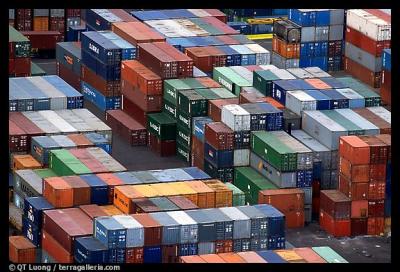Shipping containers are large steel boxes commonly used for the storage and transportation of goods. Many people will be familiar with the large containers seen on cargo ships - however they can be converted for a variety of surprising uses.
Also known as intermodal freight containers, they are designed to be moved without unloading and reloading their contents. They can be transported on cargo ships, lorries and by rail. Their use in international trade has led to more efficient transport of consumer products and goods because containers can be transferred from ship-to-ship without having to reload the ships' cargo bays. They are strong and durable to protect their contents from harsh sea conditions during transport, and it is these characteristics that make them suitable for uses other than the transport of goods.
To protect goods, containers are weatherproof and resistant to rain and wind. They range in size from 8 foot to 56 foot in length making them suitable for storing a range of items. They can be stacked on top of each other and can be securely locked.
It is their durable nature and range in sizes that make them suitable for many other uses. Shipping containers can be used as offices, canteens, accommodation, store rooms, changing rooms, workshops, vehicle storage and much more.
The process of customising a container is known as a conversion. Common additions include windows, doors, air conditioning, insulation, plumbing, electrics and shelving. Because containers come in different sizes and can be stacked, they can be joined together to create custom size buildings with multi-levels joined by internal or external staircases. Side doors or curtains, roller shutters, ramps, generators and humidity controls can be added to give the container a different purpose.
Large scale innovative uses include a student accomodation village in Amsterdam made out of shipping containers. Keetwonen is the biggest accomodation block in the world to be made out of shipping containers. The preconception was that the rooms would be small, impersonal and either too cold or too hot. However, these fears have proved to be unfounded and the accomodation is spacious, well insulated and fantastic value for money.
Another large shipping container conversion project is 'BoxPark', a shopping centre built from containers in London. The development costs are low so these savings can be passed on to the shop tenants. It can also be built far more quickly than a conventional shopping mall.
Not all conversion projects are so large though. Shipping containers can be great value as single permanent or temporary building solutions because they last so long. Shipping containers can be hired or bought from specialist suppliers.
Whether you decide to hire or buy a shipping container will depend on your budget and requirements. Suppliers will be able to supply refurbished used containers that will be much cheaper than new units and these can be a cost effective solution. Many suppliers of containers offer shipping container conversions services too, or will be happy to recommend a suitable container conversion company. Transporting containers can be expensive, particularly over long distances, because of the cost of lorry and crane hire and fuel. You can keep costs down by finding suppliers in areas close to you.

